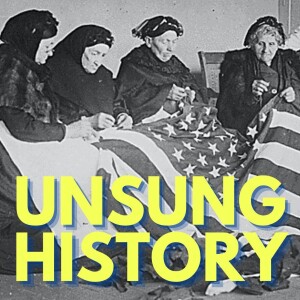
Slavery was legal in Maryland until November 1, 1864, when a new state constitution prohibited the practice of slavery. Lincoln’s Emancipation Proclamation the year before had declared slaves in the Confederate states to be free, but Maryland was in the union and not included in the proclamation. From the late 18th Century until the Civil War, enslaved families in Prince George’s County, Maryland, brought over a thousand legal suits against hundreds of slaveholding families, arguing for their freedom.
In these freedom suits, enslaved individuals sued for their freedom based on issues of breach of contract or unjust detainment. When an enslaved person won a freedom suit the individual would be granted their freedom, and it could sometimes provide the basis for future lawsuits by family members, but the institution of slavery persisted.
In 1791, Edward Queen, an enslaved man at the White Marsh Plantation in Prince George's County, sued Rev. John Ashton, a Jesuit slaveholder, for his freedom in the Maryland General Court. In Edward Queen’s petition he said he was “descended from a freewoman,” his grandmother, Mary Queen, and thus was being illegally held in bondage. In May 1794 the all-white jury decided that Mary Queen was not a slave, and thus Edward Queen should be freed and awarded 1997 pounds of tobacco, at least a third of which went to Queen’s lawyers.
Despite legal maneuvering by slaveholders to make freedom suits more difficult for the enslaved, as many as 50 of Edward Queen’s enslaved relatives won their own freedom suits on the argument that Mary Queen was not a slave, and thus her descendents should not be enslaved.
Joining me to help us learn more about freedom suits is William G. Thomas III, the Angle Chair in the Humanities and Professor of History at the University of Nebraska, and author of A Question of Freedom: The Families Who Challenged Slavery from the Nation’s Founding to the Civil War.
Our theme song is Frogs Legs Rag, composed by James Scott and performed by Kevin MacLeod, licensed under Creative Commons. Episode image: "Twenty-eight fugitives escaping from the Eastern Shore of Maryland," Schomburg Center for Research in Black Culture, Manuscripts, Archives and Rare Books Division, The New York Public Library. The image is in the public domain.
Additional Sources:
- O Say Can You See: Early Washington, D.C., Law & Family. William G. Thomas III, Kaci Nash, Laura Weakly, Karin Dalziel, and Jessica Dussault. University of Nebraska-Lincoln.
- “Anna: One woman's quest for freedom in early Washington, D.C.,” Animating History, Michael Burton, Kwakiutl Dreher, William G. Thomas III. 2018.
- The Georgetown Slavery Archive
- “Rev. John Ashton,” Archives of Maryland.
- “Missouri’s Dred Scott Case, 1846-1857,” Missouri State Archives.
Advertising Inquiries: https://redcircle.com/brands
More Episodes
 2024-10-21
2024-10-21
 2024-10-14
2024-10-14
 2024-09-23
2024-09-23
 2024-09-09
2024-09-09
 2024-09-02
2024-09-02
 2024-08-26
2024-08-26
 2024-08-19
2024-08-19
 2024-08-05
2024-08-05
 2024-07-29
2024-07-29
 2024-07-22
2024-07-22
 2024-06-17
2024-06-17
Create your
podcast in
minutes
- Full-featured podcast site
- Unlimited storage and bandwidth
- Comprehensive podcast stats
- Distribute to Apple Podcasts, Spotify, and more
- Make money with your podcast
It is Free
- Privacy Policy
- Cookie Policy
- Terms of Use
- Consent Preferences
- Copyright © 2015-2024 Podbean.com






